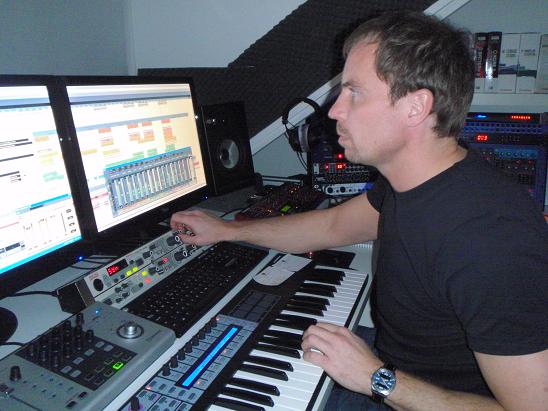History of Classical Music
- Introduction to Classical Music
- The Medieval Period (500-1400)
- The Renaissance Period (1400-1600)
- The Baroque Era (1600-1750)
- The Classical Period (1750-1820)
- The Romantic Period (1820-1900)
- The 20th Century (1900-2000)
- Modernism in Music
- Postmodernism in Music
- Women in Music
- Contemporary Music
- The Intersection of Classical Music & Pop Culture
Postmodernism in Music
The Role of Technology in Postmodern Music

Technology related to music.
The postmodern era in music, much like in other forms of art, was marked by a significant shift in the way music was created, performed, and consumed. This shift was largely driven by the rapid advancements in technology during the 20th century. This article will explore the profound impact of technology on postmodern music.
The Impact of Technology on the Creation of Postmodern Music
The advent of electronic and computer music in the postmodern era revolutionized the way music was created. Composers were no longer limited to traditional instruments and could now experiment with a wide range of sounds and timbres. This led to the creation of entirely new genres of music, such as electronic, ambient, and experimental music.
Synthesizers, samplers, and drum machines became common tools for composers, allowing them to manipulate sound in ways that were previously impossible. This gave rise to a new form of musical expression, where the focus shifted from melody and harmony to texture and timbre.
The Influence of Recording Technology
Recording technology also had a significant impact on musical composition and performance. The ability to record and edit music allowed composers to create complex pieces that would be impossible to perform live. This led to the development of studio techniques such as multi-tracking, where multiple layers of sound could be recorded and played back simultaneously.
Moreover, recording technology also changed the way music was consumed. Music could now be listened to anywhere and at any time, leading to a shift in the way people experienced music. This also led to the democratization of music, as anyone with access to recording equipment could now create and distribute their own music.
The Democratization of Music Production and Consumption
The rise of the internet and digital technology in the late 20th century further democratized music production and consumption. Music production software became widely available, allowing anyone with a computer to create music. This led to a surge in independent music production, as artists no longer needed to rely on record labels to produce and distribute their music.
Furthermore, the internet also revolutionized the way music was distributed and consumed. Music streaming platforms such as Spotify and Apple Music made it possible for anyone to access a vast library of music from around the world. This not only made music more accessible but also allowed for a greater diversity of music to be heard.
In conclusion, technology played a pivotal role in shaping postmodern music. It not only revolutionized the way music was created and performed but also changed the way it was consumed, leading to a democratization of music that continues to shape the music industry today.